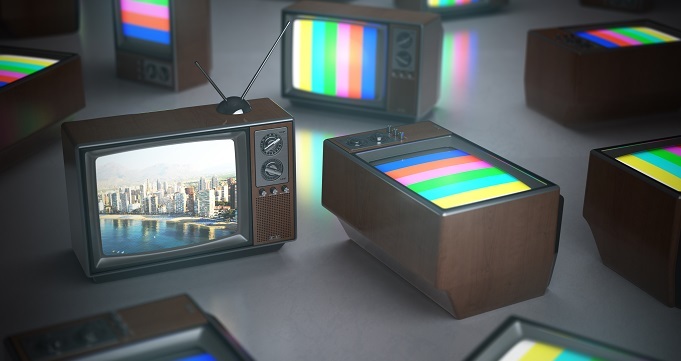
 Data Structure
Data Structure Networking
Networking RDBMS
RDBMS Operating System
Operating System Java
Java MS Excel
MS Excel iOS
iOS HTML
HTML CSS
CSS Android
Android Python
Python C Programming
C Programming C++
C++ C#
C# MongoDB
MongoDB MySQL
MySQL Javascript
Javascript PHP
PHPPhysics
Chemistry
Biology
Mathematics
English
Economics
Psychology
Social Studies
Fashion Studies
Legal Studies
- Selected Reading
- UPSC IAS Exams Notes
- Developer's Best Practices
- Questions and Answers
- Effective Resume Writing
- HR Interview Questions
- Computer Glossary
- Who is Who
What is the full form of EPG?
Introduction
Electronic Program Guide (EPG) is a digital handbook that delivers news about TV programs and radio broadcasts. It is an electronic interpretation of the conventional TV guide that you may have obtained in print form in the past.

The EPG is normally exhibited on a TV screen, set-top box or other appliances, and it demonstrates what's on different channels at any given period. EPG or Electronic Program Guides help consumers and subscribers with smooth watching and serial scheduling.
Elements of EPG
EPGs can be accessed through different standards, comprising a TV's built-in system, a set-top box, a media streaming device or even through a mobile app. Many cable and satellite TV providers offer EPGs to their subscribers as a comfort, so they can smoothly browse and select the schedules they want to watch. An Electronic Program Guide (EPG) generally consists of several elements, comprising −
Program knowledge − This comprises aspects of the programs being broadcasted, such as the name of the show, a short description, the genre, and the period of the program.
Schedule knowledge − This comprises the date, time, and channel data for each program documented in the EPG.
Search functionality − This helps to authorize users to search for programs based on keywords, such as the name of a specific concert or the name of a performer.
Navigation and sorting opportunities − These authorize users to readily guide through the EPG and sort programs based on distinct standards, such as by time, channel, or genre.
Reminders and alerts − These characteristics permit users to set reminders or alerts for distinct programs they want to watch, so they don't skip them.
Parental supervision choices − These authorize parents to prohibit access to specific channels or programs based on ratings or content.
Extra features − Some EPGs may contain extra characteristics, such as the capacity to record programs or watch on-demand content.
Varieties of EPG
There are primarily four varieties of Electronic Program Guides (EPG). Those are as follows −
Fundamental EPG − This is an easy, text-based EPG that only exhibits program knowledge such as the program name, start time, end time, and a brief explanation of the program. It usually displays knowledge for the next few hours or days, and it is generally utilized in cable and satellite TV assistance.
Developed EPG − This is a better cultured EPG that delivers users with a better interactive experience. It delivers more thorough program information, such as actor/actress names, program thumbnails, trailers, and other metadata. It may also propose search and filtering options, TV guide, reminders, personalized suggestions, and other characteristics. Developed EPGs are generally used in IPTV (Internet Protocol Television) services, as they need increased bandwidth to provide richer content.

Broadcast EPG − This is an EPG that is entrenched in the TV broadcast signal, and it is disseminated along with the TV program. This implies that users do not require an internet connection to access the EPG.
Internet EPG − This is an EPG that is provided over the internet, and it needs an internet connection to access it. Internet EPGs are generally used in IPTV services, as they authorize better dynamic and personalized content delivery.
Advantages of EPG
There are several benefits of Electronic Program Guides (EPGs). They are mentioned below −
Comfort − EPGs make it comfortable for users to browse through TV channels and view program news, such as the name of the show, its description, and the period it will be circulated. This helps users to quickly discover the programs they want to watch, without having to manually search through channels.
Time-saving − EPGs conserve time by delivering users with an easy-to-use and convenient procedure for finding and assigning TV shows and movies. This reduces the time spent converting through channels and trying to find something to watch.
Enhanced user knowledge − EPGs provide users with an additional interactive and engaging TV viewing experience. They request personalized recommendations, search and filtering opportunities, and other elements that authorize users to customize their TV-watching experience.
Up-to-date information − EPGs are usually edited in real-time, which implies that users have access to the most recent and precise program information.
Parental control − EPGs suggest parental control opportunities that authorize parents to prohibit access to specific channels or programs based on ratings or content, giving them additional control over what their children are watching. Without parental control options it becomes difficult for parents to protect their kid from watching unwanted content in the TV. A smart option of Parental control can help parents keep their children more secure.
Improved program visibility − EPGs can improve the visibility of programs by delivering explicit program information, trailers, and other metadata, which can enable the discovery of recent shows and boost the viewership of less widespread programs.
Conclusion
Aan Electronic Program Guide (EPG) is a digital handbook that delivers data about TV programs or radio broadcasts. It is an electronic interpretation of the conventional TV guide and is normally exhibited on a TV screen, set-top box, or other appliances. EPGs have several benefits, including amenities, time-saving, improved user knowledge, up-to-date knowledge, parental control, and boosted program visibility.
FAQs
Q1. How can one access EPG?
Ans: One can access EPG by pressing the guide button on the remote control.
Q2. Does EPG facilitate the recording function?
Ans: Yes, one can record channels by pressing the record option on the remote.
Q3. What do you mean by standing charges?
Ans: Fixed money that is applied to the bills is called standing charges.

